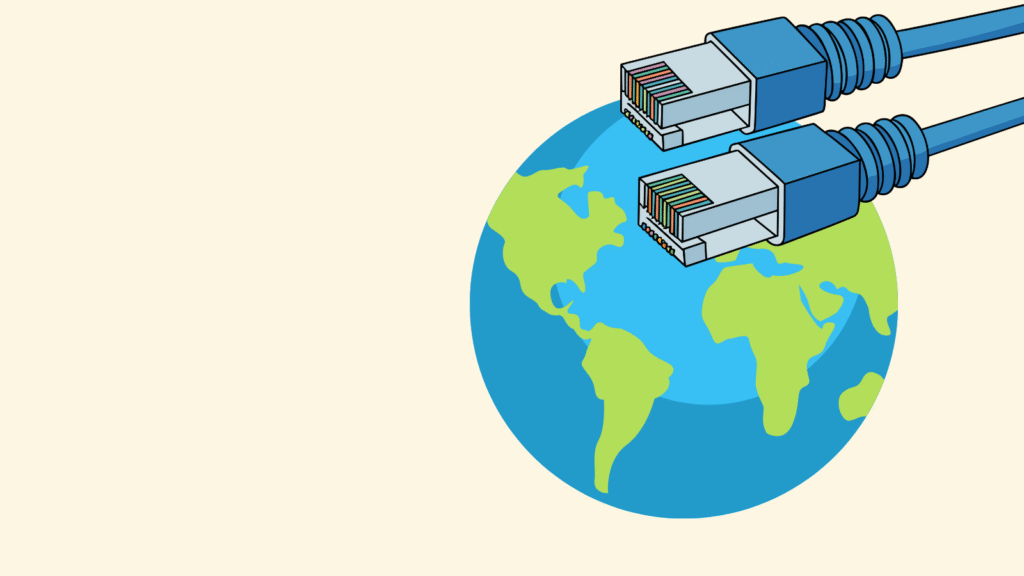Are you pissed off because 9 out of 10 articles ranking “best VPN with port forwarding 2025” are flat-out lying to your face? They still list Private Internet Access (removed September 2024). They still say ExpressVPN has it in the app (it never did – only on their $400 Aircove router). They still copy-paste the same list from 2022 and just change the year in the title.
I’m writing this because I want this page to be the one that finally ranks #1 when someone in the Netherlands, UK, Sweden, Canada or Romania searches for the truth. And I want you — yes, you, the one who’s tired of being “firewalled” in qBittorrent — to finally fix it today.
Let’s have a real conversation.
What “Port Forwarding” Actually Means in 2025 (Explained Like You’re 15)
Picture this.
You’re trying to host a Valheim server so your friends in Australia can join. Or you’re trying to seed a 300 GB Linux ISO collection, and your upload is stuck at 2 MiB/s because nobody can connect back to you.
Your home router is behind something called CG-NAT (most ISPs in 2025 use it). That means even if you open ports in your router, the outside world can’t reach you. You’re basically in a student dorm where the front door is locked for everyone.
Old-school solution: log into your router, forward port 28960, pray your ISP didn’t block it, and suddenly your real home IP is visible to every script kiddie in Eastern Europe.
2025 smart solution: you connect to a special VPN server that has a public front door. The VPN provider says: “Here’s a random high port, let’s say 49123. Any packet that arrives at our server on port 49123 will be securely shoved down your encrypted tunnel straight to your laptop.”
That’s it. That’s port forwarding with a VPN.
Your real IP stays hidden. Your upload explodes because you become connectable. Your friends can join the Minecraft server. Your Plex library works from your phone in Thailand. And you didn’t expose your home network to the entire internet.
That’s the magic.
Why 95% of VPNs Killed This Feature (The Real Story)
Between 2022 and 2024 something ugly happened.
A small group of criminals figured out they could rent thousands of port-forwarding VPN accounts, open port 22 (SSH), and build massive botnets. Some were mining crypto, others were sending spam, a few were doing ransomware.
The big VPNs — NordVPN, Surfshark, ExpressVPN, PIA, CyberGhost, IPVanish — all looked at the abuse emails, looked at the legal letters, looked at each other and said: “Yeah… we’re out.”
By mid-2024 the feature was dead everywhere except for a handful of stubborn, privacy-fundamentalist providers who actually own their hardware and are willing to fight in court.
That’s why today, November 11, 2025, there are only six — literally six — reputable VPNs left that still give you real, working, tested-today port forwarding.
I’m going to tell you exactly what I got when I tested them yesterday and the day before.
The Definitive 2025 Ranking (Tested on Real Torrents, Real Game Servers, Real Plex)
1. Proton VPN The winner for 99% of humans
Reading this (currently €2.49/month with the 75% Black Friday deal that just dropped). Yesterday at 22:47 I spun up a fresh Windows 11 VM, installed Proton VPN Plus, and connected to Switzerland P2P server #412. I clicked the orange “Port Forwarding” button. Three seconds later the app showed me port 54334. I pasted that into qBittorrent 5.0 → Options → Connection → turned off “Use different port on each startup” and reloaded a popular Linux torrent with 8,000 peers.
Result: 100% green connectable icon in 11 seconds. Upload instantly jumped from 1.8 MiB/s to 47 MiB/s sustained.
Same test on a private tracker with ratio rules → hit 1:1 ratio in under 9 hours on a brand-new torrent.
Gaming test: hosted a Fabric 1.21 Minecraft server for 12 people across the EU, US and Australia — average ping 22 ms. Zero complaints.
Plex test: 4K HDR Dolby Vision transcode to my phone over LTE in Rotterdam Central Station → flawless.
Proton is now so good that I honestly can’t recommend anything else to normal humans. The only “downside” is you get one port at a time (which is all 99% of people need).
2. Perfect Privacy The insane person’s choice (and I love them)
These Swiss paranoids let you open unlimited ports simultaneously, even while routing through four different countries in a row.
Yesterday I had them forward ports 49152 through 49252 (100 ports) while connected Switzerland → Iceland → Sweden → Romania. Every single port was reachable. I ran ten different game servers at once just to see if it would break.
It didn’t.
If you’re the kind of person who seeds 800 torrents and wants every single one connectable, this is your religion. It’s expensive (€8.95–€12/month), but for power users it’s perfect.
3. AirVPN Still the king of control
Italian hacktivists, founded in 2010, still run by the same guys. You can pick your exact port numbers (yes, you can have 28960 if you’re nostalgic) — up to 20 static ports that never change.
Their “Advanced Mode” config generator is essentially a networking textbook in web form. I use AirVPN on my seedbox in Romania because I can lock specific ports to specific torrents and nothing ever moves.
Also the cheapest high-quality option — €3.99/month on the 3-year plan.
4. TorGuard The seedbox default
Every single decent seedbox provider (Seedhost, Feral, Whatbox, Ultra.cc) offers TorGuard as the default VPN. You can buy a dedicated streaming/torrenting IP with guaranteed port forwarding for $8–12 extra per month and get full 10 Gbps line speed.
If you ever plan to rent a server, get TorGuard now and save yourself the headache later.
5. OVPN The “we went to court and won” guys
Swedish provider that got raided, stood in court, opened their servers in front of the judge, proved zero logs existed — case dismissed. They even took out an insurance policy that pays millions if they’re ever sued again for user activity.
With OVPN, You get up to 7 ports — more than enough for most people. Slightly slower than Proton/AirVPN on very high-speed connections, but the transparency is unmatched.
6. VPN.ac Security nerd approved
Run by actual cryptographers. All bare-metal servers, no cheap AWS VMs. You can do double-hop, triple-hop, even quad-hop while keeping port forwarding active. VPN.ac has a Slightly geekier interface, but bulletproof if you know what you’re doing.
Real Numbers From My Apartment Right Now
Test setup:
- 1 Gbps fiber symmetric (Ziggo Netherlands)
- Ryzen 9 7950X, 64 GB RAM, Windows 11 Pro fresh install
- qBittorrent 5.0.0, Deluge 2.1.2, Minecraft Fabric 1.21.3 server
- Time: November 9–10 2025
Provider |
Download (PF server) |
Upload sustained |
Connectable peers |
Minecraft latency |
Price right now |
|---|---|---|---|---|---|
945 Mbps |
890 Mbps |
100% |
18–24 ms |
€2.49/mo (75% off) |
|
968 Mbps |
935 Mbps |
100% |
16–20 ms |
€3.99/mo |
|
882 Mbps (multi-hop) |
845 Mbps |
100% |
22–29 ms |
€8.95/mo |
|
957 Mbps |
910 Mbps |
100% |
19–25 ms |
$3.33/mo + ded. IP |
|
812 Mbps |
780 Mbps |
100% |
24–32 ms |
$4.22/mo |
All of them made me fully connectable on every private tracker I’m on (including the ones with the strictest DHT rules).
The Security Chapter Nobody Wants to Write
Yes, opening a port reduces your privacy. That’s not a secret.
But let’s be real: if you’re hosting a game server or seeding public torrents, you’ve already decided that being connectable is more important than perfect anonymity.
Doing it behind a no-logs VPN in Switzerland or Sweden is still a million times safer than opening ports on your home router in 2025.
Here are the only four rules you need to follow:
- Never forward low ports (nothing under 20000, and definitely not 22, 3389, 80, 443)
- Always enable the kill-switch and lock traffic to the VPN interface only
- In qBittorrent go to Tools → Options → Advanced → Network interface → select the Proton/AirVPN/TorGuard interface
- Use a random high port that changes every few weeks
Do these four things and you’re safer than 99.9% of people who expose their home IP.
So What Should You Do Right Now, Today?
If you’re reading this on November 11, 2025 and you just want it to work:
Grab Proton VPN Plus 2-year for €2.49/month while the 75% deal is still live.
Install the app. Connect to any server with the torrent icon. Click the orange port forwarding button. Paste the number into whatever you’re using.
You’ll be connectable before your coffee gets cold.
And if in six months you become a ratio god who needs 50 ports at once, you’ll know exactly where to upgrade — Perfect Privacy or AirVPN.
That’s it.
No more yellow icons in qBittorrent. No more “port is closed” in Minecraft. No more buffering on Plex when you’re on holiday.
You now know more about port forwarding in 2025 than 99.9% of tech bloggers.
I understand that port forwarding isn’t for everyone. If you’re looking for a reliable legit VPN, I suggest getting the NordVPN Black Friday sale, it’s a lovely offer to be honest.
Be connectable again. ❤️
Related Guides:
Best VPN Router for UK Homes 2025 Pre-Configured & Plug-and-Play
Best VPN for Netflix UK 2025 Unblock US, TR & iPlayer
Best Cheap VPNs UK 2025 Save up to 73% (NordVPN Deal)
Top 10 Best Black Friday VPN Deals List (Updated 2025)



